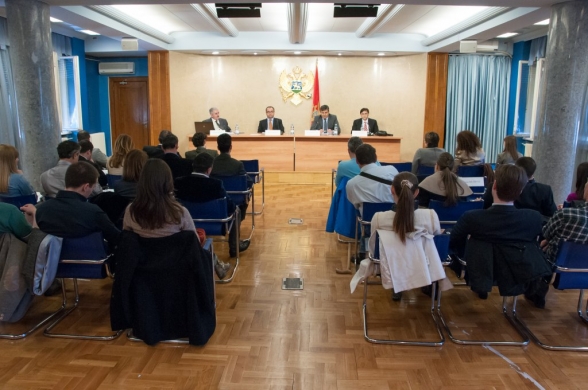Today’s public debate on the topic: “Montenegro and the European Union: legislation in the field of taxation” was marked by the overall discussion on regulations in the field of taxation and influence of taxation on everyday's life of citizens.
The following spoke on the content of the Chapter with regard to legislative framework and degree of harmonisation of domestic legislation with European standards: Mr Slaven Radunović, Chairperson of the Committee on European Integration, Mr Nikola Vukčević, Director General of the Budget Directorate in the Ministry of Finance and negotiator for Chapter 16, Mr Novo Radović, Assistant Director of Tax Administration in the Department for monitoring of tax regulations, inspection audit and administrative proceeding and member of the Working Group for chapter 16 as well as Mr Dragan Radanović, manager in the Sector for cooperation and assistance to European Union Delegation to Montenegro.
Legislative framework in this field covers direct and indirect taxations, administrative and mutual help between tax and customs bodies of member states as well as the field of operational capacities and computerisation. It was emphasises, during the debate, that taxation policy of our country was characterised by high degree of harmonisation with European legislation, but also that transitional periods for implementation of certain European regulations might be expected with the aim of protecting economic interests of citizens.
Pointing out to importance of each negotiation chapter, participants stressed that all possible differences in opinion must be overcome for the purpose of providing better living standard of citizens and reaching of European values.
A good practice of considering negotiation chapters has been continued through this debate, which was organised prior to consideration of negotiation position for chapter 16, with the aim of increasing the degree of transparency and inclusion as important elements of negotiation chapter. The debate was attended by representatives of state bodies, nongovernmental sector and members of interested committees.









